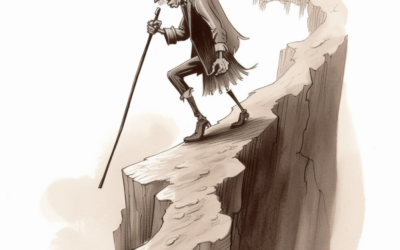Creative Thoughts
Thoughts Where do they come from?
I like experiences and activities that engage my brain and get the neurones firing. This can be across many domains, from acupuncture to physics, from improvising on the piano to solving a business or operational issue. Sometimes the brain is foggy or a bit lethargic and other times it is spontaneous, quick and illuminating. But why and when?
What are creative thoughts?
Moments of inspiration, finding new solutions to old problems, evolving and finding new ways of expressing oneself. We need them in all spheres of life; at work, in relationships, in art and music, in writing, in science. Sometimes we can forge them through our will and repeated focus, but more often they arise when we give our subconscious brain a bit of time to play.
Creative thoughts are characterised by their ability to deviate from conventional patterns and generate original ideas. They emerge from a fusion of knowledge, experiences, emotions, and observations, blending together in our subconscious mind. Weaved together fragments enable us to perceive the world through a different lens.
When do they arise?
When do creative thoughts come to you? When you wake up in the morning, on the bus, while going for a walk, when you are with certain people or in different environments. Often, creative thoughts manifest in moments of introspection, relaxation, or even during seemingly mundane activities. I like to get into a good passive stretch, do some slow and deep breathing, jot some key words down on a piece of paper or vocally repeat a couple of key concepts. Then I go back to my breathing. Do this a couple of times over 15 to 20 minutes and usually at some point the ideas just start flowing. Sometimes not. Then I either make some mind maps or dictate and try and articulate the ideas, concepts and solutions to make sure I don’t loose them. Voice memos are great for this, then you can always listen back to yourself.
What circumstances promote creative thought? There are a variety of ways you could promote creative thoughts.
Set aside time for yourself to think, to daydream, to consider what is occupying your mind from different perspectives. Let the mind settle, give the mind some space, let go, breath out.
Set yourself a problem, a goal or a deadline
Necessity is the mother of all invention. Deadlines and a bit of stress can be positive as long as they are not overly mundane, else you end up delivering suboptimal solutions as you struggle to remain engaged and kind of go on autopilot. Nevertheless, grinding things out and getting to the route of a problem starts the neurones firing and sets up possibilities for new associations.

Trial and error with a bit of play
If something gives you pleasure or fascinates you, then all you have to do is engage, try, fail and try again. Of course this is also learning but the more you play with an idea or concept or whatever it may be, the more you develop your own personal relationship to it and the more it becomes part of you. Slowly and with time you start to express yourself freely through it and ways to be creative present themselves to you.
Repetition is magical
On the other side of the coin, repetition is magical, but to be done properly is hard mental work. Good repetitive practice of a task or subject requires a relaxed concentration for an extended period of time – at some point you are not the one doing the task or repeating lines of text, the task just is or the lines just are there. At this point perspective is gained, and the mind can play and deliver you all sorts of answers, you feel inspired!
Self talk
Or maybe you are struggling with something in a relationship or at work or at school. Engaging with it, discussing it or meditating on it can lead to it changing or moving forward. Self talk is also good. Don’t set expectations too high, just do it. The unconscious mind has its own timetable and will deliver you a solution, a healthy compromise or a new perspective that allows you to change and grow when it is ready and when you are ready to hear it.
Conclusion
Observing the world with a curious and open mind allows us to make unexpected connections which can lead to novel ideas. Our inner life, emotions, personal experiences, and self-reflection shape our creative thought process. Embracing solitude and providing space for introspection can create an environment conducive to cultivating creative thinking.
Thanks for reading,
Charles Hart











